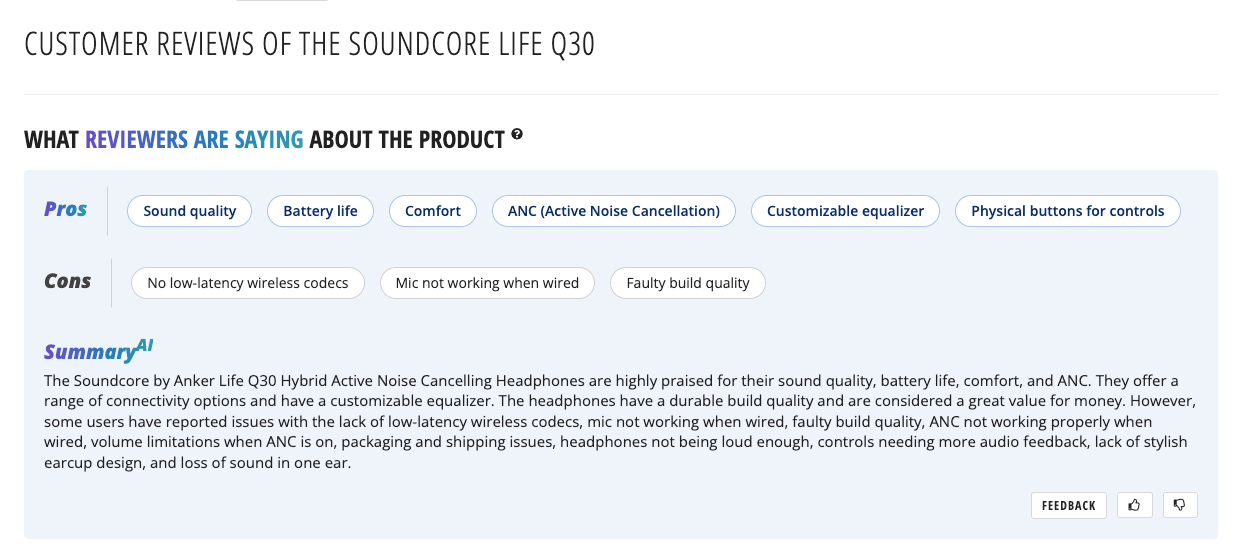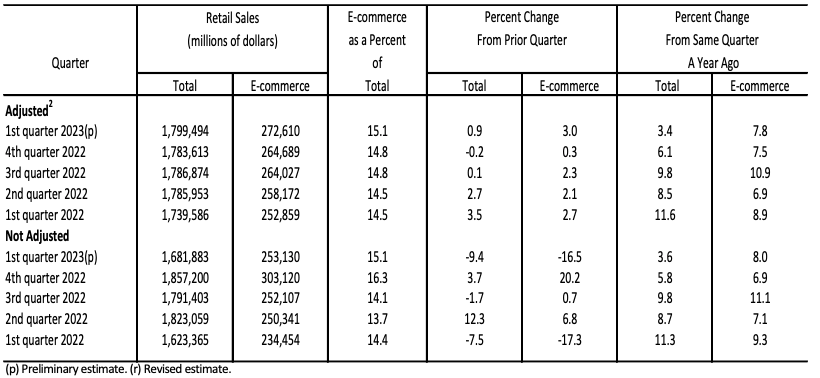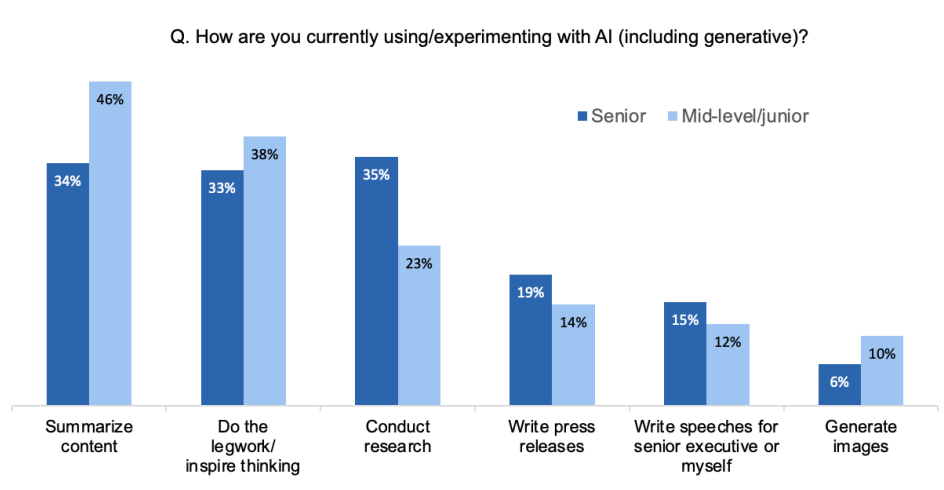AI Review Summaries, E-commerce $1T, AI Adoption

AI Summaries the Future of Reviews?
E-commerce site Newegg introduced AI-generated review summaries (h/t SEL). And Amazon is doing something similar. Newegg is using ChatGPT to extract highlights from reviews and create a list of "pros" and "cons" and a synopsis. The content is branded "Review Bytes." It's designed to help users "understand key aspects without having to read reviews." AI content is labeled and linked internally to the source reviews. Below is an example for headphones (not many products on the site appear to have these yet). Newegg won't create these without some undisclosed minimum number of reviews. The site also still displays a graphic showing the distribution of reviews. And verbatim consumer reviews are still accessible. On the latest Near Memo podcast we discuss how our user research is revealing that the majority of people don't read reviews – even though they drive clicks and conversions. People focus instead on star ratings. AI generated summaries probably represent the future of online reviews.

Our take:
- Many years ago startup OpenList (acquired by Marchex in 2006) had the capacity to generate local review summaries. But it died post acquisition.
- Potential issues with AI summaries are trust and accuracy. Also, will publishers skew them to generate more sales? A new kind of gating.
- Reading a bunch of reviews is a burden. So, if trustworthy, consumers would likely welcome AI summaries as a shortcut.
E-commerce Crosses $1T in 2022.
E-commerce has achieved a new milestone. It finally crossed the $1 trillion threshold in the US last year. According to data from the US Census Bureau e-commerce spending came in around $1.04 trillion in 2022. Total US retail spending was $7.1 trillion, making e-commerce ~15% of the total. (E-commerce partisans adjust the number up to 20% by removing categories from the calculation.) Yet online sales growth has slowed considerably from its pandemic high, though it still outpaces traditional retail. According to eMarketer, click and collect/BOPIS was about 9% of all online orders in 2022, or about $90 billion. Google says that nearly 90% of consumers do online research before making offline purchases. Indeed, consumer behavior is messy and complex, and the binary online vs. offline discussion is outdated.

Our take:
- Jeff Bezos predicted in 1998 that e-commerce would get to about 15% in the US by 2008, although he was then discussing book sales primarily.
- More two-thirds of consumers want to see local inventory online and traditional stores drive online sales. This embodies the complexity of the customer journey.
- DTC brand Warby Parker continues to open stores. They boost brand awareness, loyalty and make customer acquisition less expensive.
Nearly 90% Using AI Tools
There are a number of emerging AI-SEO use cases including keyword research, content creation, landing/product page creation and others. Now, a new Conference Board survey finds that almost 90% of marketing and communications professionals are using AI tools already. The sample was 287 junior and senior-level employees. The two groups are using AI differently, with senior executives using it for research/inspiration and junior employees using it more as a productivity tool. Majorities 60% -70% are using it "sometimes" or more frequently. The top AI uses are "summarize content," "do the legwork/inspire thinking," "conduct research," "produce content faster" and "personalize content." The biggest perceived benefit is "productivity." The biggest concerns are misinformation/accuracy, legal uncertainty and data security/privacy, with some concern about jobs and impact on culture.

Our take:
- Mid-level and junior employees are using AI more often and widely than senior management. They are the ones driving adoption.
- Regardless of concerns, AI is already established and will be ubiquitous in most organizations relatively soon.
- In a B2B SEO context, most content will be partly or largely AI generated. Google no longer says it's spam but will continue to struggle with it.
Recent Analysis
- Near Memo episode 123: Google vs. ChatGPT 'Pepsi Challenge,' Google's bad advice on content pruning, and do consumers actually read reviews?
- How to Use Google's New 'Image Not Approved' Appeal Form, by Mike Blumenthal.
Short Takes
- SGE is showing more links for "Places" from Google Maps.
- Informal poll: 50% of SEOs and digital marketers "hate" GA4.
- What GA says about 20 years of Barry Schwartz's SEO coverage.
- Google testing QR codes in ads (phone extensions): "scan to call."
- SEO for AI snapshots may be very different than featured snippets.
- Ahead of Q4, Google rolls out ad improvements, including for LIAs.
- Controversy over "content pruning": is Google giving bad advice?
- How to use ChatGPT code interpreter for SEO.
- Lyft introduces in-app ads, will be geo-relevant and contextual.
- Twitter hopes brand-safety partnership with IAS will bring ads back.
- Right vs. left: different LLMs have different political biases.
- Bain argues metaverse could still be worth $900B by 2030.
- Growing new Slack SEO community; sign up here.
Listen to our latest podcast.

How can we make this better? Email us with suggestions and recommendations.

